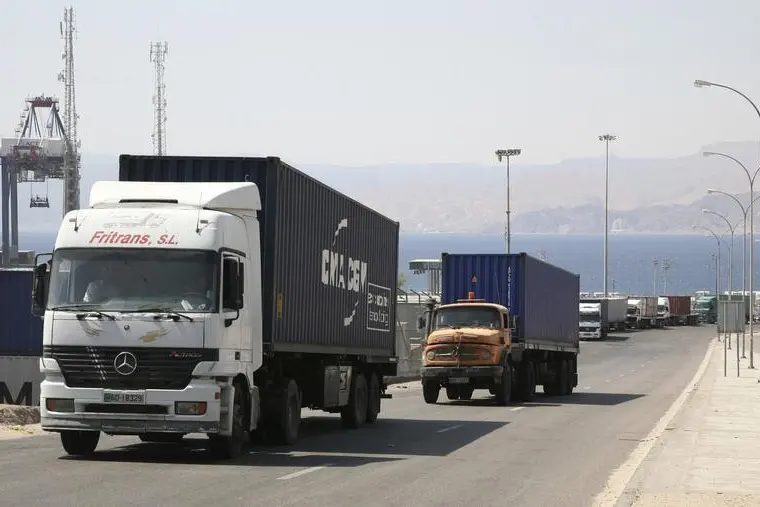PHOTO
Bahrain - Fewer border checkpoints will ease the flow of trade between GCC markets, it has been suggested.
This is one of the 75 recommendations of the GCC Customs Union draft prepared by the Federation of GCC Chambers.
The draft is currently being explained to the GCC Chambers through workshops, the third session of which was held yesterday at the Bahrain Chamber of Commerce and Industry (BCCI) headquarters in Sanabis.
The paper is based on a feasibility study conducted by Gulf Organisation for Industrial Consulting (GOIC) and will be tabled at the second Gulf Economic Forum in Riyadh next month.
“The major challenge is to address the issue of helping goods move easily between markets (in the GCC),” Federation of GCC Chambers secretary-general Abdulrahim Hassan Naqi told the GDN on the sidelines of the workshops.
“A common market means there should be no Customs check between countries and we suggest this be implemented.
“There should be only one point between two borders for Customs and immigration. For example, if a truck is cleared in Bahrain it should not be checked again in Saudi Arabia or the UAE.
“This will avoid truck drivers having to stay for days at the border, and reduce losses. The plan will be implemented soon as discussions with Customs officials in the GCC are underway.”
Mr Naqi said the proposal is being discussed over workshops across the GCC. The first workshop was held two weeks ago in Riyadh, the second in the Eastern Province and now in Bahrain.
“The GCC Secretariat has also adopted it and will soon be taking it up to discuss to have the GCC Customs Union registered globally.”
The recommendations once adopted and implemented will enhance intra-GCC trade flow, said GOIC assistant secretary-general Shmalan Hamoud Al Jeheidli.
“A GCC Customs Union will reduce the difficulties and constraints facing the movement of national and foreign goods and increase the volume of intra-GCC trade,” he told the GDN.
Competition
“This will also lead to increased competition, higher production rates and optimal utilisation of available resources, thereby reducing consumer prices.”
BCCI board members Abdulhakim Al Shemmari said the GCC union could add to the impact of the Customs Union on the intra-GCC trade.
“The GCC union of Customs was announced in 1993 and after almost 25 years we (the private sector) believe that the result is much below than what we expected.
“In the last 10 years, we have forwarded many proposals regarding reducing barriers between the countries concerning clearance, transportation and certification of goods.
“The Gulf Customs Union is about wealth and growth and the private sector which can replace the income generated by the oil industry.
“This union has nothing to do with the larger GCC union, it is only about the growth of trade exchange between GCC, which is a natural growth related to population and economy. But a GCC Union will definitely make a larger impact.”
The workshop was attended by BCCI chief executive Dr Khalid Al Ruwaihi, board members and businessmen.
The GDN earlier reported that the one-stop procedures at the border were first announced in December 2016 and were due to take 18 months to implement. Once in place, vehicles will have to stop at just one post to carry out routine border procedures, including passport control, car clearance and Customs. Drivers going to Saudi Arabia will only have to go through Saudi formalities, while those heading to Bahrain will require only Bahraini clearance.
Currently drivers have to complete Bahraini and Saudi formalities, which often results in congestion at busy times.
- Customs Affairs has registered an increase in e-payment transactions for customs clearance. In January, a total of BD2,845,714 worth transactions were registered, a rise by 181 per cent compared with December 2017.
© Copyright 2018 www.gdnonline.com
Copyright 2018 Al Hilal Publishing and Marketing Group Provided by SyndiGate Media Inc. (Syndigate.info).





















